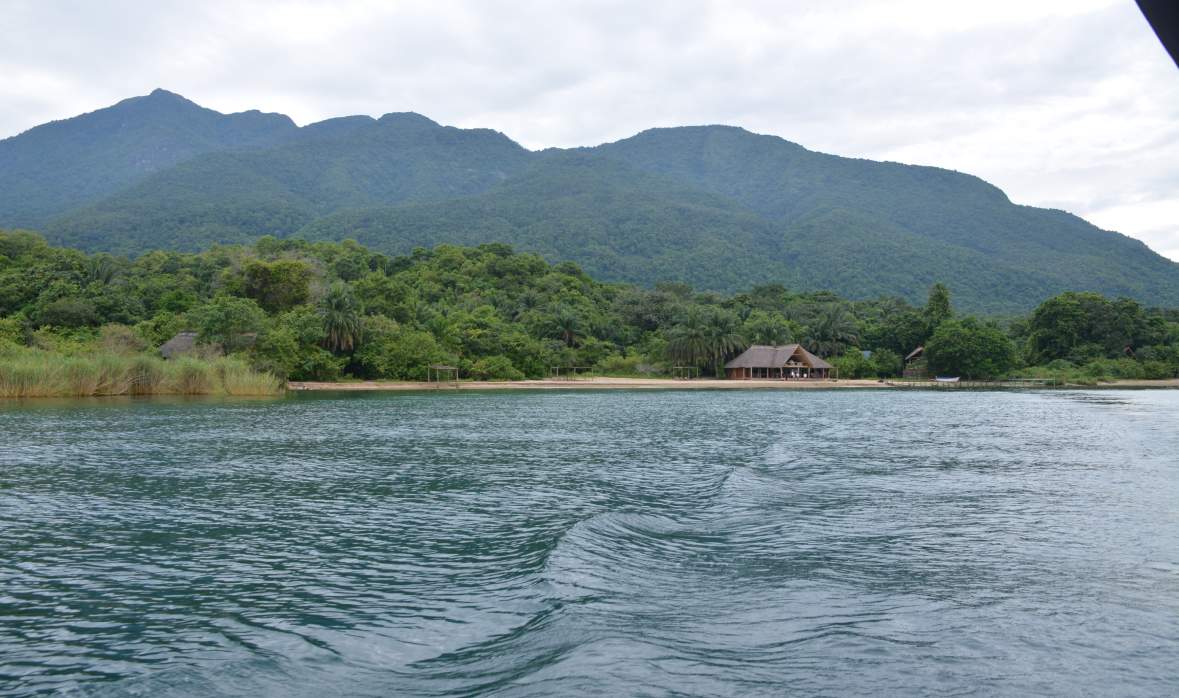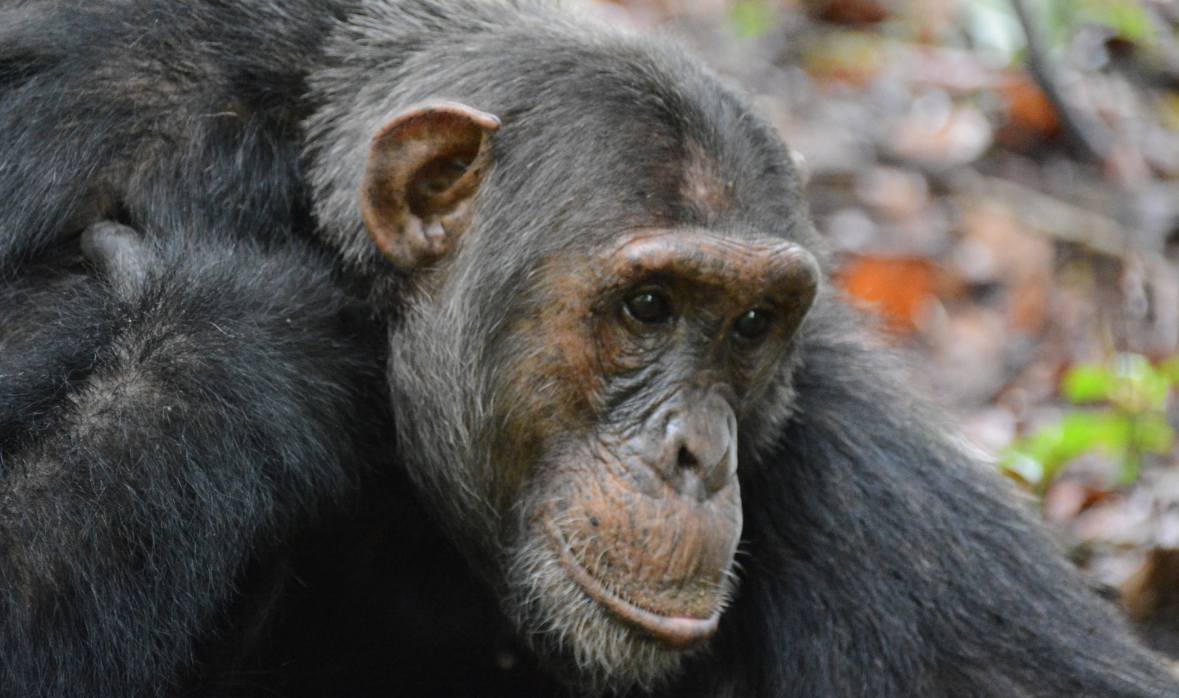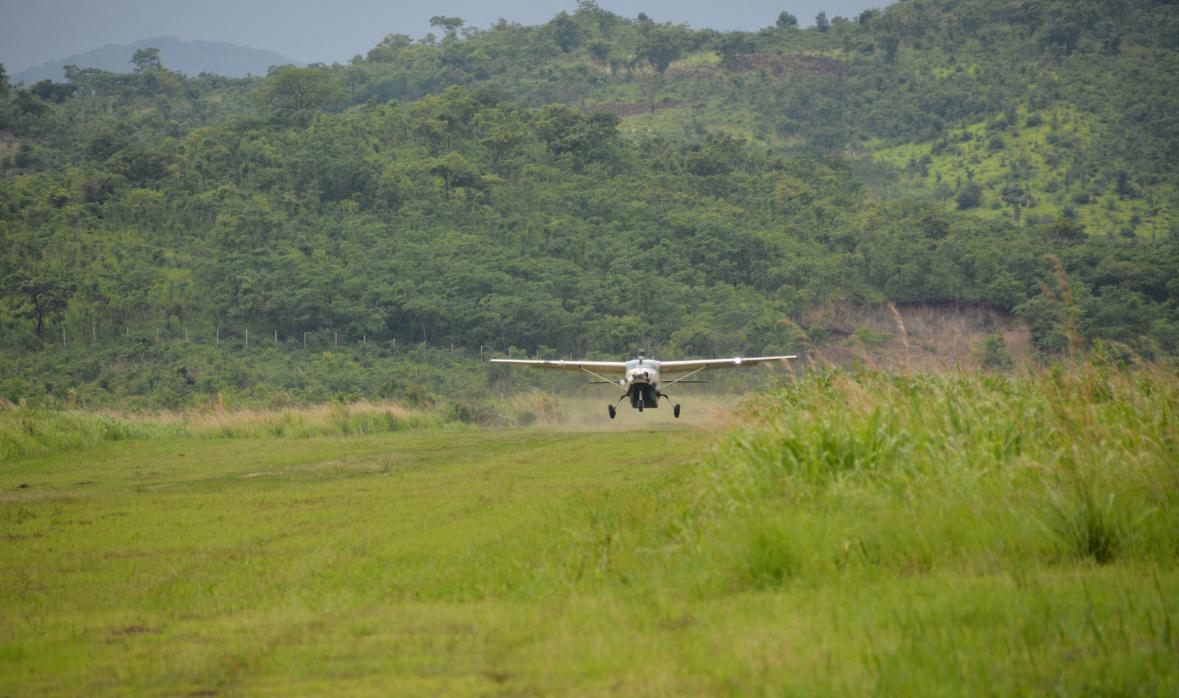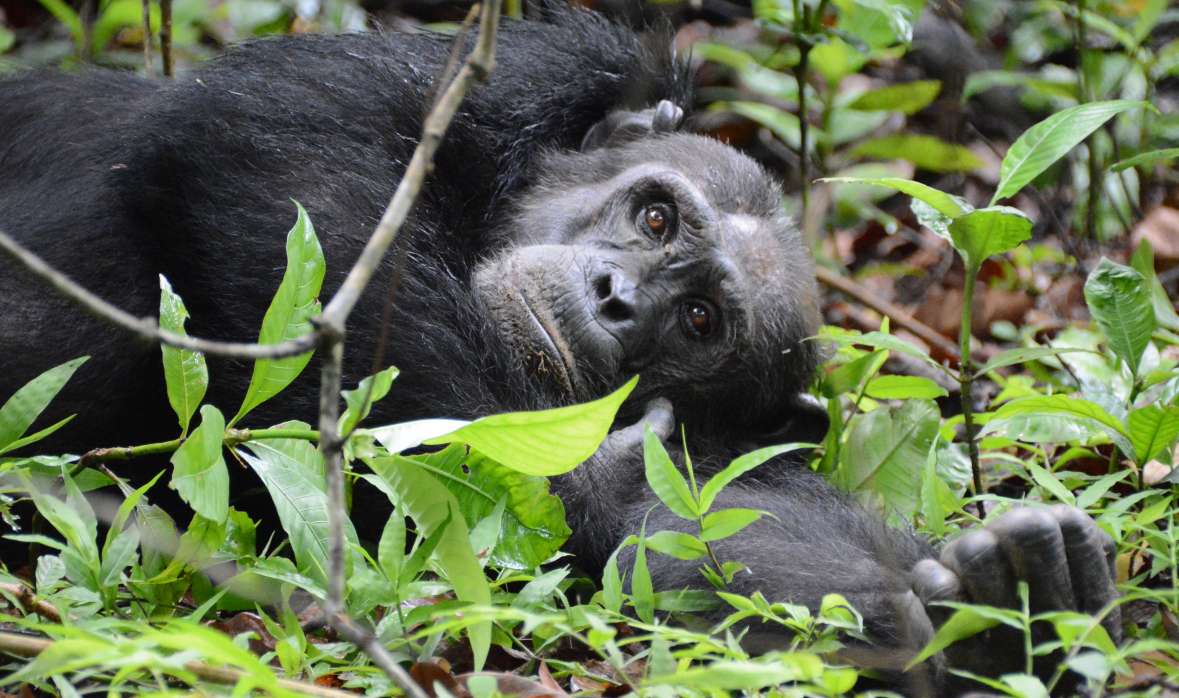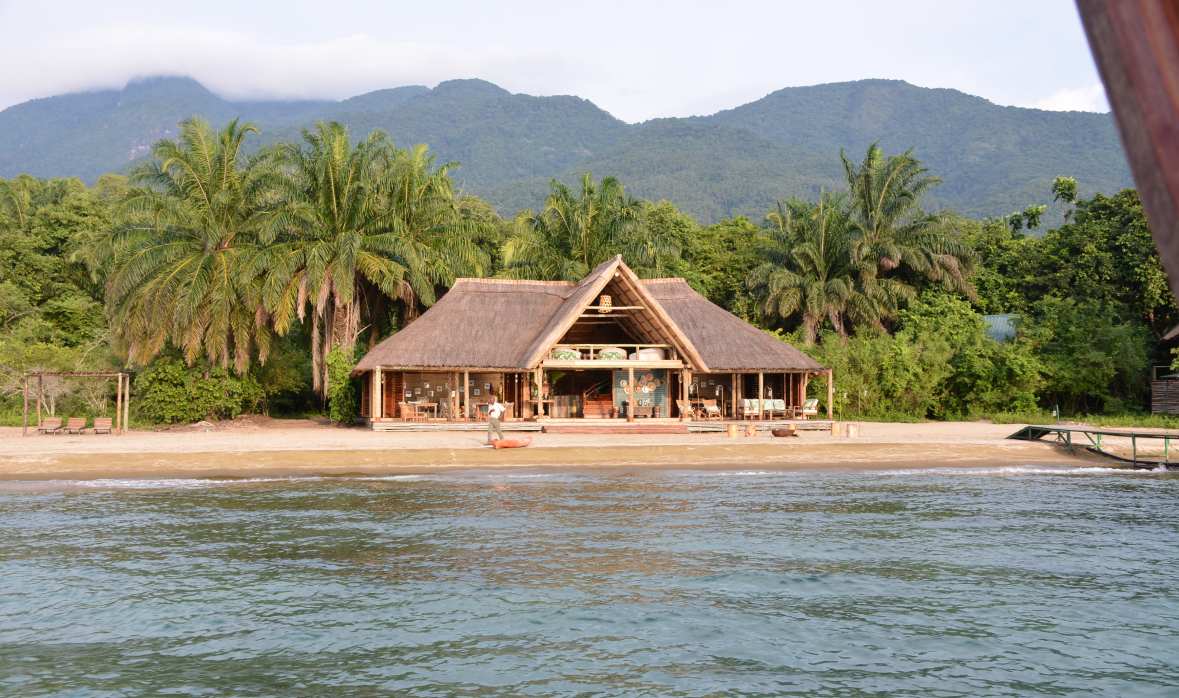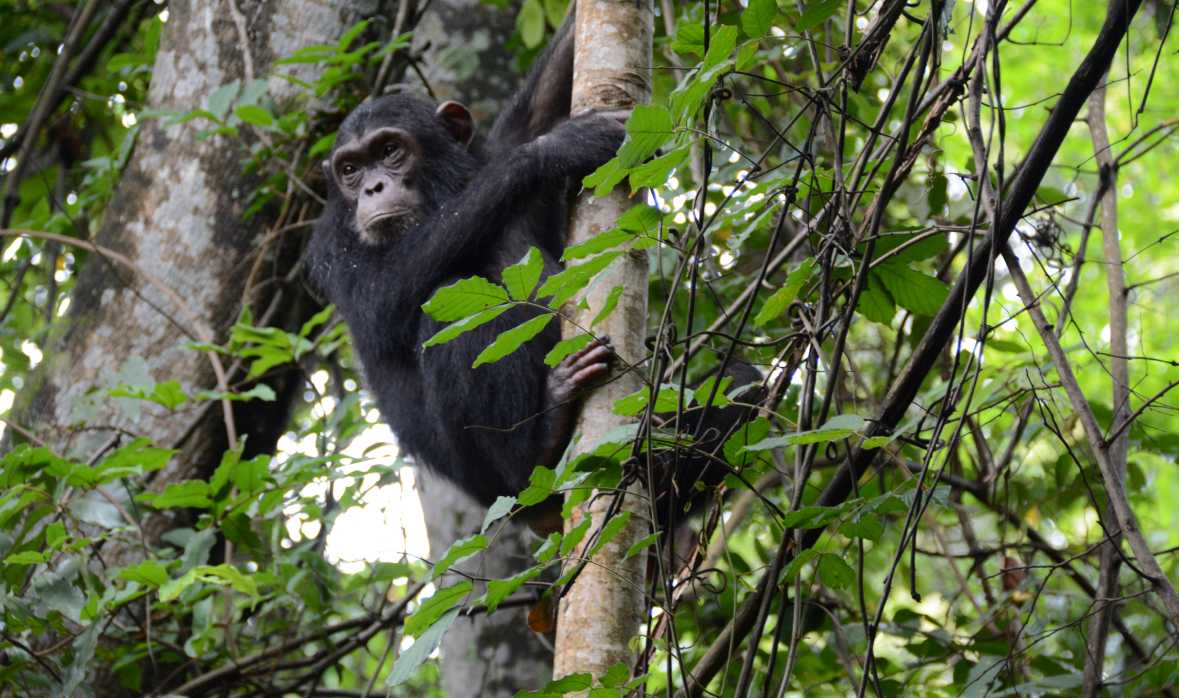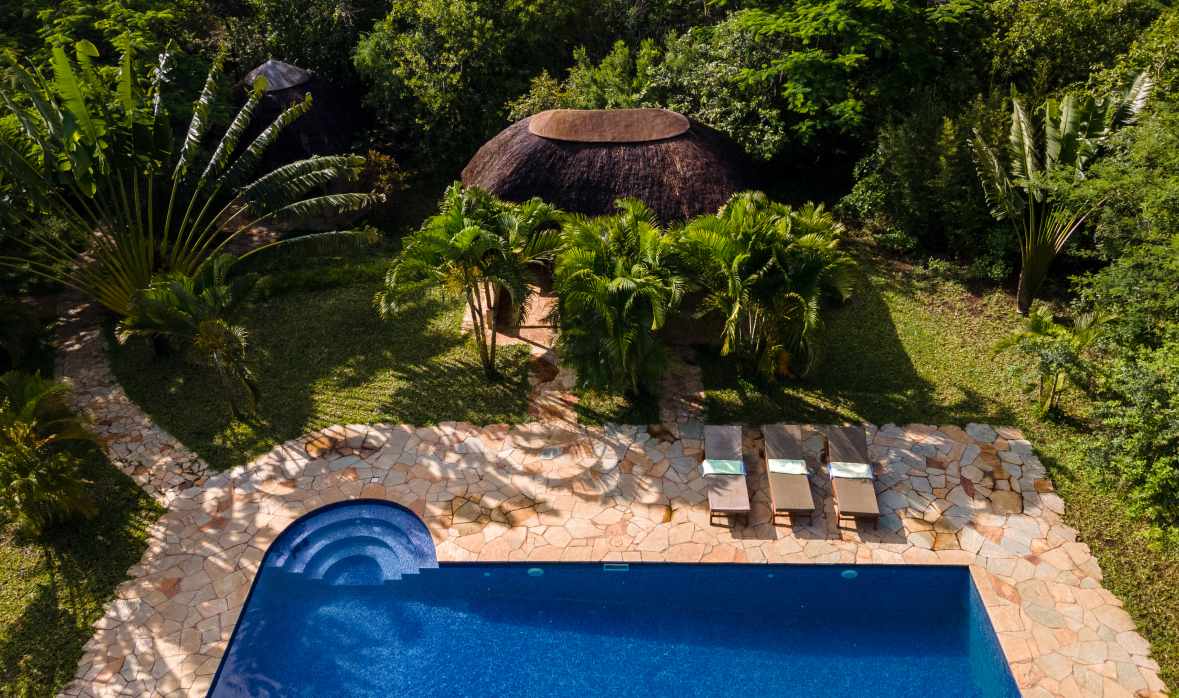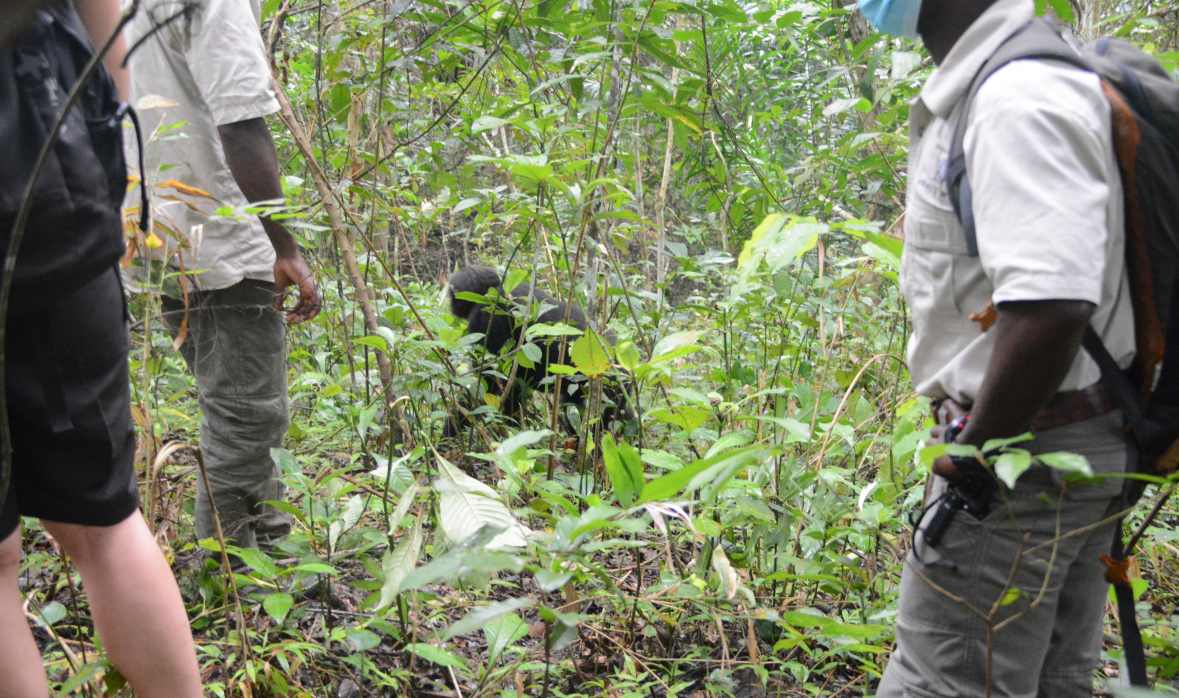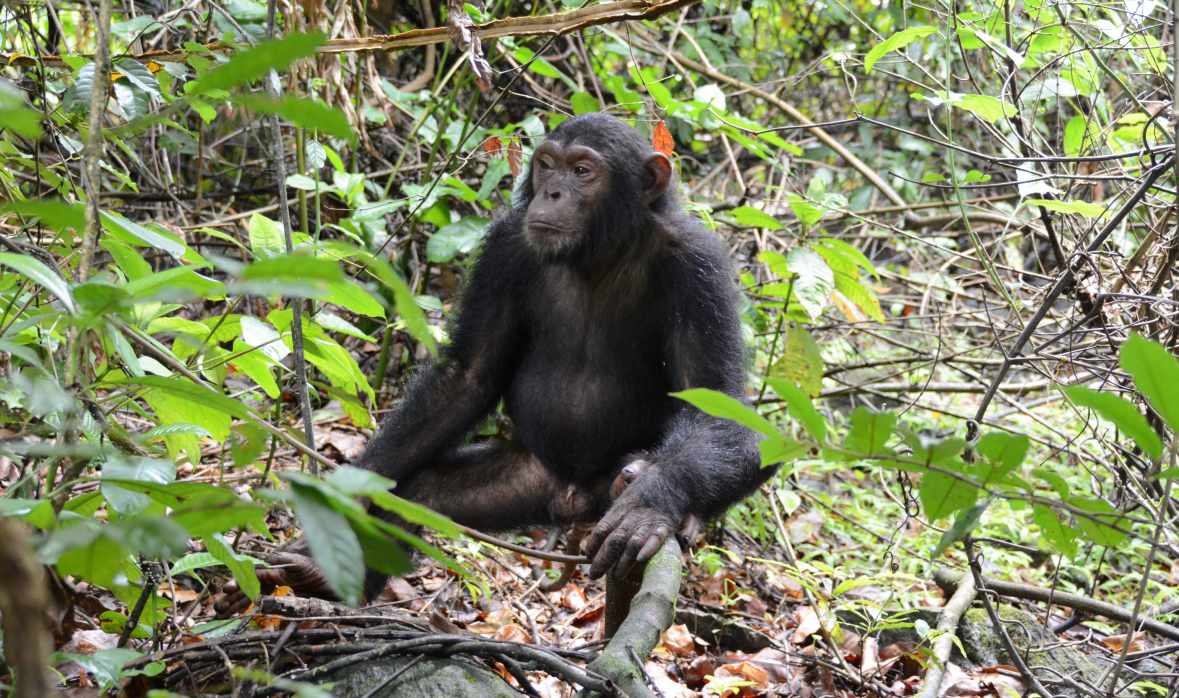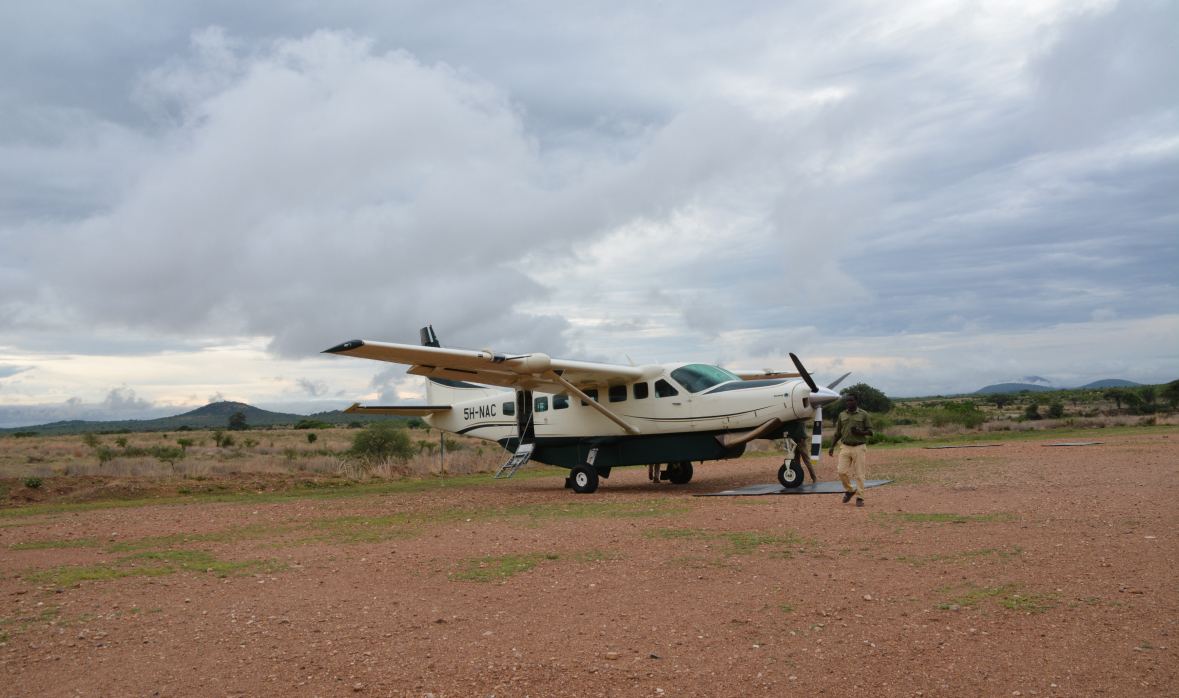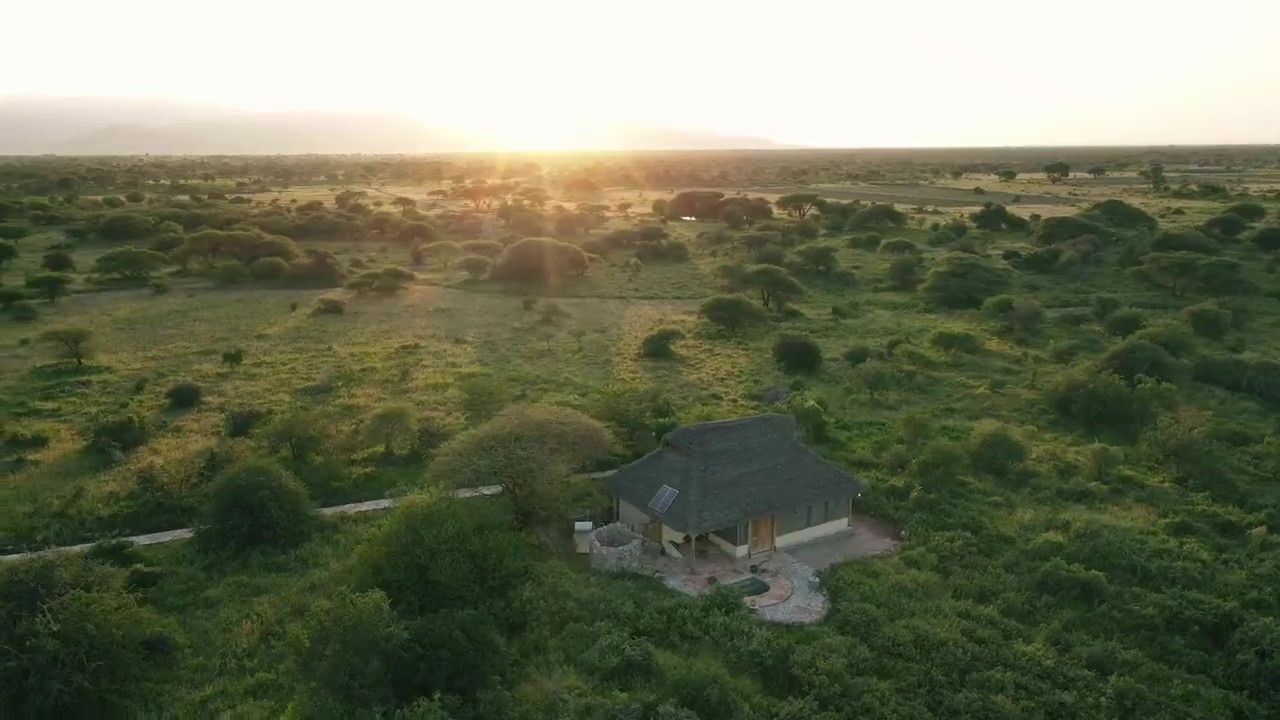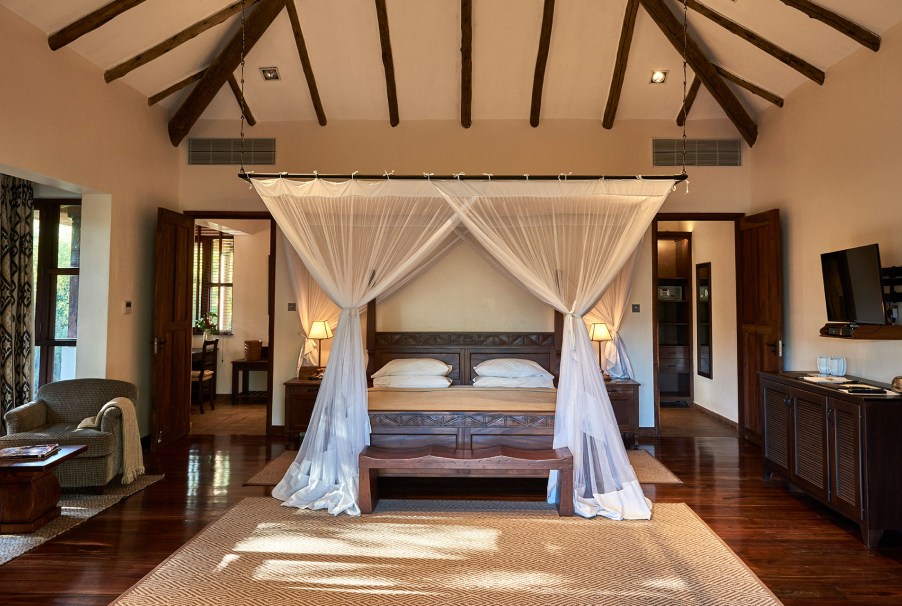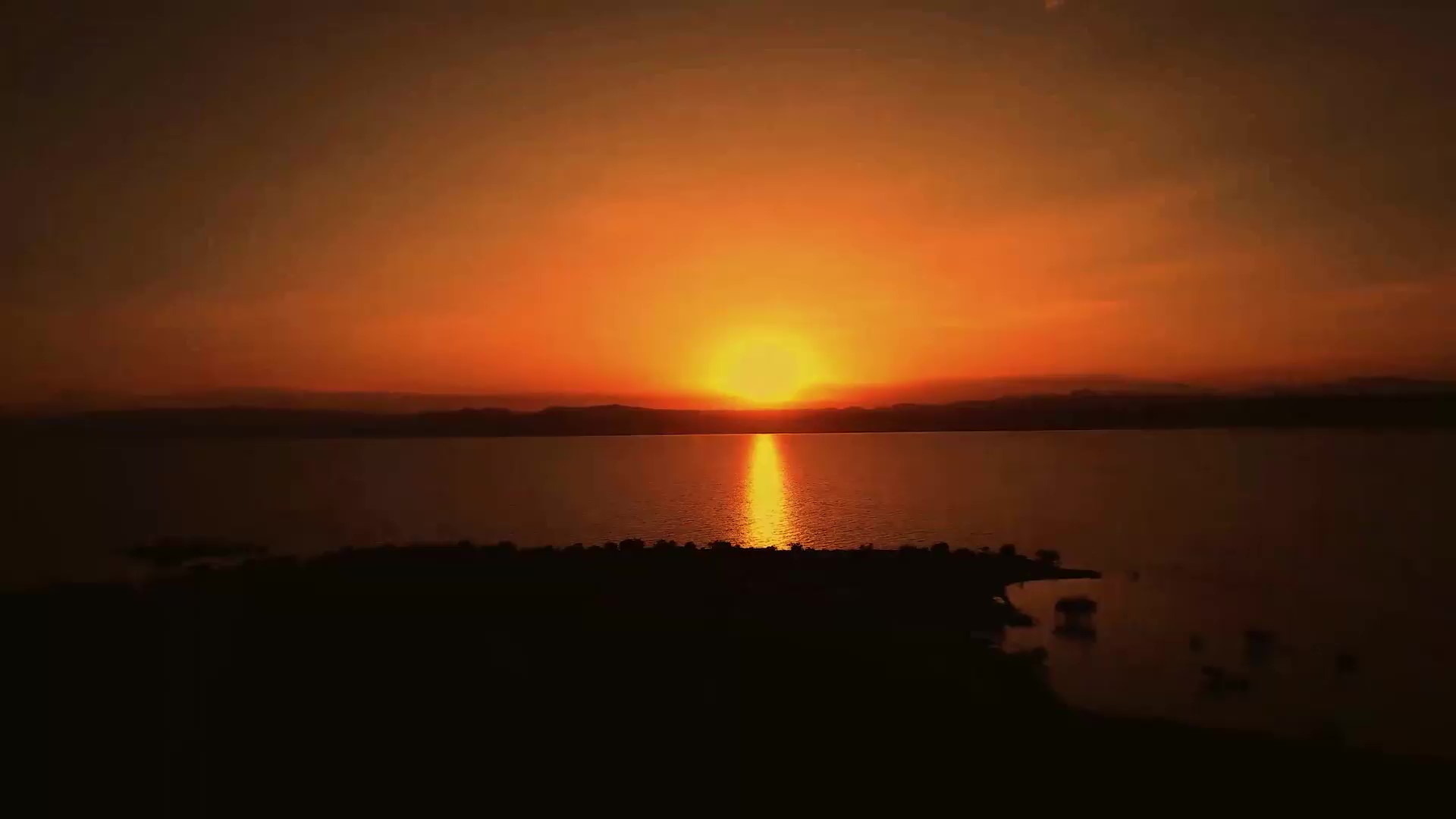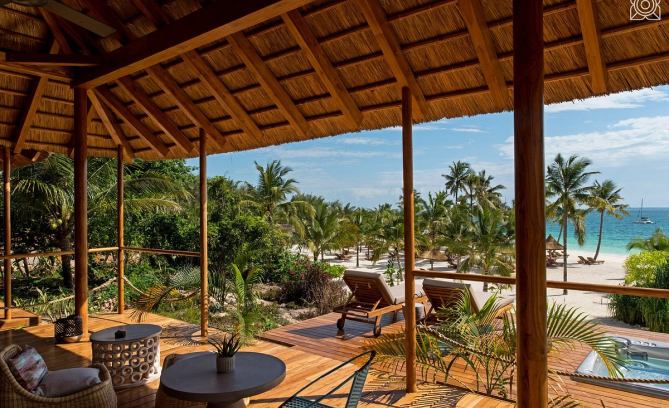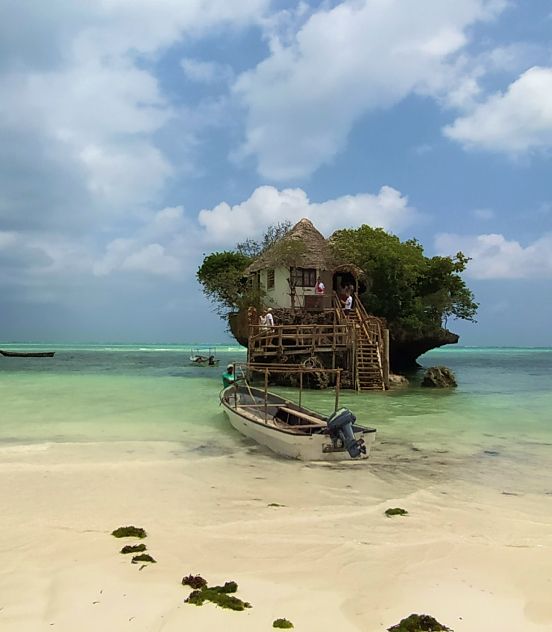The Chimpanzees of Mahale
Embark on a journey to encounter chimpanzees in Mahale National Park, located in western Tanzania.
Overview
Head off the tourist track to a remote region of Tanzania, to experience a unique safari to observe Africa’s last remaining wild chimpanzees. Welcome to this unspoiled sanctuary where nature reigns above all.
June to March
5 days
From age 12
Welcome to this sanctuary at the edge of the world
Mahale Mountains National Park covers 1,613 km2 in western Tanzania.
The Mahale Mountains overlook the coast of Lake Tanganyika, the least polluted freshwater lake in the world. It is home to around 250 different species of fish, some of which are found nowhere else.
It is in this heavenly setting that you will experience a chimpanzee safari in Tanzania, where these incredible primates roam freely.
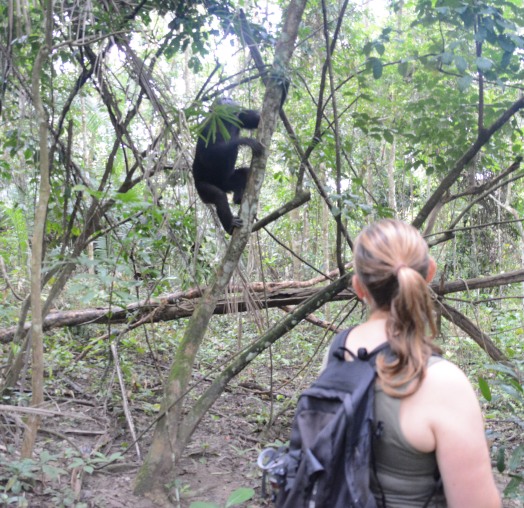
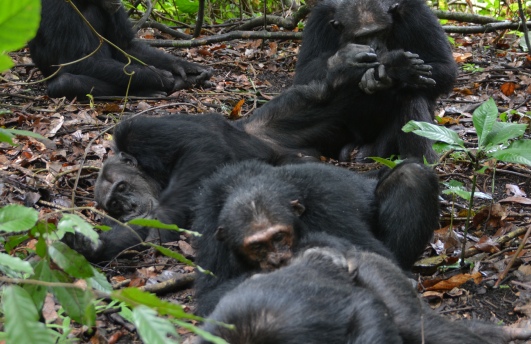
Your highlights
CHIMPANZEE
The observation must be done with the greatest respect for the animals. The dry season is the best time to observe them.
AWAY FROM THE CROWDS
This remote park in the west of the country is far from the tourist crowds. Time seems stand still in Mahale.
INTERNAL FLIGHTS
Flights only take place twice a week. Our travel designers are by your side to help you build the perfect itinerary for you.
IN THE FOOTSTEPS OF JANE GOODALL
Jane Goodall is an ethologist and anthropologist, she conducted the longest field study ever done on chimpanzees, in Tanzania in 1960.
Itinerary
details
Browse through our tour and contact us to tailor it to your travel needs.
Day 1: Arusha
Welcome to Tanzania! The ideal destination for safari lovers. Upon your arrival at Kilimanjaro International Airport, you will be met by our teams and transfer to the accommodation.
Villa in the Arusha region
Private car
Day 2: Arusha – Mahale
Aboard a small bush plane, fly to reach the Mahale airstrip. Transfer by boat, approximately 1h30, to the lodge. Lunch at the lodge. In the afternoon, trek in search of chimpanzees or walk in the forest. Dinner and night at the lodge on the beach.
Lodge near the lake
Bush plane
Day 3: Mahale
After breakfast, departure for a trek in search of chimpanzees. Return to the lodge for lunch. Afternoon of rest at the lodge. Dinner and second night at the lodge on the beach.
Lodge near the lake
Day 4: Mahale
After breakfast, departure for a trek in search of chimpanzees. Return to the lodge for lunch. In the afternoon, go for a boat ride on Lake Tanganyika. Go and observe the hippos and try your hand at local fishing. Dinner and third night at the lodge on the beach.
Lodge near the lake
Day 5: Mahale – Arusha
After breakfast, return by boat to the airstrip and return flight to Arusha by small bush plane.
Bush plane
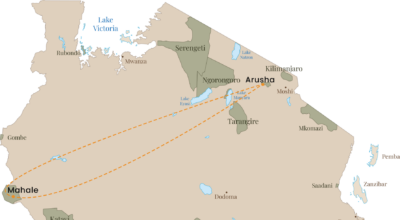
Our added value:
A tailor-made experience
An extra day? This itinerary can be modified according to your wishes, your availability and your budget. Our travel designers are on hand to help you build the safari of your dreams.
Their experience
Quality of accommodation above our expectations (especially catering). Very attentive staff, pleasure to communicate in French. Exotic settings of the accommodation. Madiba's experience, his passion and the quality of listening make him a reference guide. Thanks to him, this trip was a real success for our first safari.
Dominique & Nathalie
More information
The price of a safari in Tanzania depends on the number of participants, since certain costs, such as the vehicle, are shared.
The season is also important, and there is a significant difference in price between high and low season.
We invoice in US Dollars, so please be aware of the conversion rate.
The season is also important, and there is a significant difference in price between high and low season.
We invoice in Dollars US, so please be aware of the conversion rate.
This trip starts at $4,300 US per person for a trip of 2 participants in a double room, in low season."
THE PRICE INCLUDES
- Full service from day 1 to departure transfer
- Internal flights to Mahale
- Accommodation in the establishments mentioned.
- Full board basis for meals
- Government park entrance fees
- Our assistance throughout your stay
THE PRICE DOES NOT INCLUDE
- Flights
- Visa fees
- Insurance
CHIMPANZEE OBSERVATION RULES
Children under the age of 12 cannot take part in chimpanzee research. You must wear a mask and keep a distance of 10 metres from the chimpanzees. It is forbidden to visit the chimpanzees if you are ill. It is forbidden to eat, drink, smoke, spit or wear perfume in the vicinity. No traces should be left on the site, and it is advisable to dig a deep hole if you need to go to the toilet. Speak softly, avoid sudden movements and eye contact. A group should not exceed 6 people plus a guide, with a maximum of one hour of observation and three hours of monitoring. Although the Mahale chimpanzees are used to humans, they remain wild, and it is crucial not to disturb them.
A group of visitors must be a maximum of 6 people, plus the guide. The observation time is one hour at the most and the monitoring must be a maximum of 3 hours even if the authorized time observation was not reached."
On the last day of this itinerary, you can take an internal flight from Arusha to reach the island of Zanzibar. This trip pairs perfectly with a few days at the beach to complete your discovery of Tanzania.
Looking for a unique sporty adventure? Trust our team of experts trained by French high mountain professionals and set off to climb Mount Kilimanjaro.
Frequently Asked Questions


How do I book?
Step 1
Choose a trip that inspires you from our catalog
Step 2
Contact us by requesting a quote on our website
Step 3
Personalize your experience with our travel designers
Step 4
Confirm your reservation and start packing!
